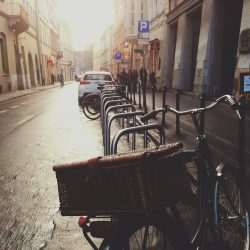Communications publiées lors de congrès ou colloques nationaux et internationaux
Pelgrims, C. (2022). Towards ethical mobility behavior: The socio-ecological potentiality of ambiance-based mobility infrastructure design. Structures and Architecture: A Viable Urban Perspective? Proceedings of the Fifth International Conference on Structures and Architectures (5: 6-8 July: Aalborg), vol.2. Leiden: CRC Press, p.181-82.
Participations actives à des congrès et colloques internationaux
Pelgrims, C. (2022). Les enjeux éthiques de la vidéo-ethnographie dans les mobility studies: Le cas des recherches sur les pratiques cyclistes. Paper session presented at Rencontres Francophones Transport Mobilité (4: 7-10 juin: Université du Luxembourg)

Le projet
Objectifs scientifiques:
Moving towards sustainable mobility will require improved understanding of the gendering processes across cycling mobility as the bicycle is a vector of sustainable lifestyles but gender norms still restrict its development. Research on gender and mobility neglects the sensitive materiality through which gender is constructed, and aesthetical approach of mobility infrastructure takes little interest so far in gender. To investigate how gender intersects with aesthetics in the ongoing formation of bicycling practices, equipment and infrastructure will lead to a better understanding of the potential of gender dynamics as an agent of change in creating more sustainable cities. The aesthetical experience of the bicycle has a key role in the continuous infrastructuring processes of bicycling practices, equipment and infrastructure. My main hypothesis is that the aesthetical experience also creates a tension with the dominant norms of feminity/masculinity, impacting the ongoing gender formation and deconstruction. The deconstruction of these unequal political categories constitutes an important step towards the development of more systemically sustainable cities.
Focusing on French and Swiss cities at different stages in the implementation of their cycling policies, the research will develop an original interdisciplinary, comparative and multi-scale approach that deploys the concept of social imaginary to explore the spatial (micro)practices in relation to cycling materialities and ambiances, embodied experiences, meanings and representations, drawing on object-based, visual and mobile methodologies. It will cast light on affective and sensible resonances between infrastructure, environment, equipment and gendered bodies. In the longer term, to investigate the aesthetical dimension of mobility participates in the effort in research to overcome the curiously immaterial and disembodied conceptions of sustainability.
Obj. 1: To analyse and compare how the ongoing gendering processes and sensible and affective relations to bicycle impact each other. (WP1.1 and WP1.2: M1-12): Content-analysis of a corpus of cultural production around bicycles (1995-2020), interviews of resource persons and mobile video-ethnography.
Obj. 2: To analyse and compare how the emerging aesthetic relationships to cycling impact gendered practices and cycling infrastructures. (WP2.1, WP2.2 and WP2.3: M13-24): Multi-scale analysis of the transnational evolution of the design guidelines and norms for cycling infrastructure, content-analysis of athe same corpus, cycling ride-along.
Obj. 3: To investigate the extent of gender stereotypes in the acknowledgment of cycling as a sustainable practice. (WP3.1 and WP3.2: M17-24): Mobility biography survey, interview with actors involved in the construction of active mobility policies.
Jusqu’aux années 1900, les bicyclettes étaient largement considérées comme des accessoires masculins. Aujourd’hui, le vélo est un vecteur des modes de vie durables et, par conséquent, un facteur de mobilité durable. Son développement et sa diffusion restent toutefois entravés par des normes de genre. Pour créer des villes plus durables, il est essentiel de comprendre les intersections entre le genre, l’esthétique et les pratiques, équipements et infrastructures cyclistes. Le projet SENCyclo, financé par l’UE, examinera comment l’expérience esthétique crée une tension avec les règles prédominantes de la féminité et de la masculinité, affectant la formation et la déconstruction du genre. En se concentrant sur les politiques cyclistes françaises et suisses, il développera une méthode innovante, interdisciplinaire, comparative et multi-niveaux pour étudier les résonances sensibles entre les infrastructures, l’environnement, les équipements et les corps genrés.
Terrains:
Three French cities have been selected to investigate cyclist cultures in urban context at different stages in the implementation of their cycling policies. Montreuil and Grenoble have developed urban policies that promote cycling practices and household cycling equipment, respectively since 2000 and 1995 while in Strasbourg urban policies, as early as in the 1970s, have allowed the bicycle to remain of daily use. This has resulted in contrasted bicycle share of trips: 1.9% more broadly in Ile-de-France (2018) (3.3% of home-work commute in Montreuil), 4% in Grenoble (2010) and 8% in Strasbourg (2009).[1] One Swiss city has been added to account for the impact of the relief on gendered cycling practices (sportive dimension) and cultural differences in terms of infrastructuring processes: Lausanne with 1.6% of bicycle share of trips (2015).[2]
[1] EGT H2020-Île-de-France Mobilités-OMNIL-DRIEA / Résultats partiels 2018; INSEE recensement 2015; Household travel survey 2010 (Grenoble); household Travel Survey 2009 (Strasbourg).
[2] Microrecensement Mobilité et Transport 2015 (Lausanne).